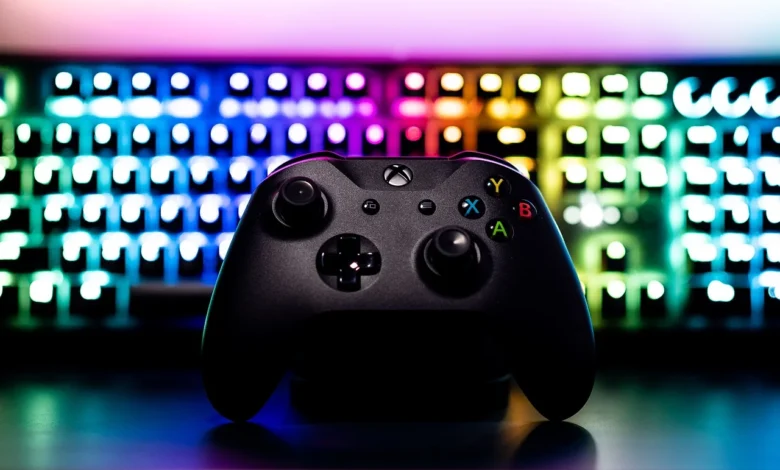Video Games And Mental Wellness: How Gaming Can Improve Mood And Focus

For years, video games have been a topic of ongoing debate. While they have often been criticized for potentially leading to addiction or fostering antisocial behavior, recent research highlights the mental health benefits they can offer. Far from being mere entertainment, video games can have a profound effect on mental wellness by improving mood, enhancing focus, and even serving as therapeutic tools for stress and anxiety. This article explores how gaming can positively impact mental well-being, helping people stay mentally sharp, connected, and emotionally balanced.
The Science Behind Video Games and Mental Wellness
Video games stimulate different parts of the brain, particularly the regions responsible for problem-solving, attention, and memory. The immersive nature of video games provides players with an engaging environment that requires concentration, quick decision-making, and adaptation. This cognitive engagement helps strengthen neural pathways and can enhance brain plasticity, allowing the brain to adapt and learn more efficiently.
Moreover, video games also trigger the release of neurotransmitters, such as dopamine and serotonin, which are often called the “feel-good” chemicals. These neurotransmitters are crucial in managing mood and emotions. When playing video games, particularly those that involve achieving goals or overcoming challenges, the brain rewards itself by releasing dopamine, which promotes a sense of pleasure, motivation, and satisfaction.
How Video Games Improve Mood
One of the most immediate benefits of video games is their ability to improve mood. Whether it’s a quick match in a multiplayer game or progressing through levels in a solo adventure, gaming can provide a sense of achievement and happiness.
1. Stress Relief and Relaxation
Video games can be a highly effective tool for relieving stress. Engaging in a game can act as a distraction from real-life problems and offer a safe outlet for frustration or anxiety. Many people turn to gaming to unwind after a long day, using it as a form of escapism that allows them to focus on something enjoyable rather than their stressors.

For instance, games with calming graphics or ambient sounds such as farming simulators or puzzle games are particularly soothing. These games promote a sense of peace and provide a mentally safe space where players can relax without external pressures.
2. Sense of Accomplishment
Achieving objectives, unlocking rewards, or mastering a challenging level can trigger feelings of accomplishment. This sense of achievement can boost self-esteem and positively impact mental health by providing individuals with a rewarding experience. Games often feature systems that reward players for their progression, which reinforces the notion of competence and success, two factors that are integral to positive mental well-being.

For example, in role-playing games (RPGs), players can build characters, complete quests, and advance through a storyline. The incremental progress that players see in their in-game performance translates into feelings of personal growth, even outside the game. This reinforces their confidence, helping to foster a positive mindset.
3. Social Interaction and Emotional Support
The stereotype of the lone gamer in a dark room is outdated. Many games today offer multiplayer options, where players can connect and collaborate with others from around the world. These interactions can provide a social outlet that is especially valuable for individuals who might feel isolated or struggle with forming social connections in real life.

Online multiplayer games, such as “Fortnite” or “Call of Duty”, often require teamwork and communication, which builds camaraderie and a sense of belonging. For some players, this interaction can serve as a form of emotional support, providing them with friends or companions who share similar interests. The relationships formed in gaming communities can lead to lasting friendships and reduce feelings of loneliness, which is essential for mental health.
How Video Games Improve Focus
In addition to boosting mood, video games can significantly enhance focus and cognitive function. The mental engagement required for gaming often involves concentration, attention to detail, and quick reflexes. Here’s how video games can sharpen focus and improve brain function:
1. Enhanced Attention and Concentration
Many video games require players to concentrate on multiple tasks simultaneously, from keeping track of the in-game objectives to monitoring surroundings and reacting to sudden changes. These cognitive demands train the brain to sustain focus over extended periods.

Action games, in particular, require split-second decision-making, improving players’ ability to maintain sustained attention and react quickly to fast-moving stimuli. A study published in the journal Psychological Science found that players of fast-paced action games had better visual attention and were able to process information more rapidly than non-gamers. This improved attentional control can be applied to real-life tasks that require focus, such as studying, working, or driving.
2. Problem-Solving and Strategic Thinking
Video games often present players with complex challenges that require strategic planning and problem-solving. Whether it’s managing resources in a strategy game like “Civilization” or figuring out how to navigate a difficult puzzle in “Portal”, players must use their cognitive skills to find solutions.

This practice of critical thinking and adaptive problem-solving can translate into improved cognitive function in everyday life. Players who frequently engage in such games develop better decision-making skills, learn how to think on their feet, and can apply these abilities in high-pressure situations outside of the gaming environment.
3. Improved Memory and Learning Ability
Certain types of games, particularly role-playing games and puzzle-based games, require players to remember intricate details, sequences, or instructions. These memory-intensive tasks challenge the brain to retain and recall information, improving both short-term and long-term memory.

For example, games like “The Legend of Zelda” series often involve remembering maps, item locations, and quest objectives over long stretches of time. By exercising memory and recall skills, these games help keep the brain sharp and enhance learning capacity.
Therapeutic Uses of Video Games for Mental Health
Beyond casual gaming, there is a growing body of research that supports the use of video games as therapeutic tools for mental health conditions such as anxiety, depression, and ADHD.
1. Video Games for Anxiety and Depression
Several studies have shown that playing video games can help reduce symptoms of anxiety and depression. For instance, games designed with mental health in mind, such as “SPARX”, a role-playing game developed by researchers to help young people with depression, offer a virtual platform where players can learn coping mechanisms and cognitive-behavioral techniques in a game-based format.
Moreover, gaming can provide an escape for individuals struggling with these conditions, allowing them to temporarily step away from their worries and immerse themselves in a world where they can exert control. By giving players a sense of agency and success, games can counterbalance the feelings of helplessness and hopelessness often associated with anxiety and depression.
2. Cognitive Behavioral Therapy (CBT) in Games
Some games are being developed to include elements of Cognitive Behavioral Therapy (CBT), a widely-used form of therapy that focuses on changing negative thought patterns. By incorporating CBT principles, these games can offer therapeutic benefits in a way that feels engaging and interactive. This not only makes therapy more accessible but also encourages individuals to practice and apply these techniques in a non-threatening, playful environment.
3. Video Games for ADHD
Video games can be particularly helpful for children and adults with ADHD. Many games require sustained attention and multitasking, which helps individuals with ADHD practice focus and self-regulation. Some researchers have even developed video games specifically designed to target and improve ADHD symptoms. For example, “EndeavorRx”, the first video game approved by the U.S. Food and Drug Administration (FDA) as a prescription treatment for ADHD, is designed to improve attention function in children.
The immersive nature of video games provides a platform for individuals with ADHD to develop cognitive skills in a stimulating and enjoyable way. This can have real-life benefits, such as improving focus in school or work environments.
Maintaining a Healthy Balance
While video games have numerous benefits for mental wellness, moderation is key. Excessive gaming can lead to negative consequences such as gaming addiction, social isolation, or neglecting real-life responsibilities. Setting boundaries, taking regular breaks, and balancing gaming with physical activity and social interaction are essential to ensuring that video games remain a positive influence on mental health.
Parents should also monitor their children’s gaming habits to ensure they are playing age-appropriate games and not spending excessive hours on screens. Encouraging a healthy gaming routine that includes educational and cognitively engaging games can further enhance the mental wellness benefits.
Summing Up
Video games offer a wide range of benefits for mental wellness, from improving mood and providing stress relief to enhancing focus, memory, and cognitive skills. Far from being a passive form of entertainment, gaming engages the brain in ways that can positively impact mental health. Whether used as a therapeutic tool or simply for enjoyment, video games have the potential to improve emotional well-being and sharpen mental abilities when played in a balanced and mindful way.





